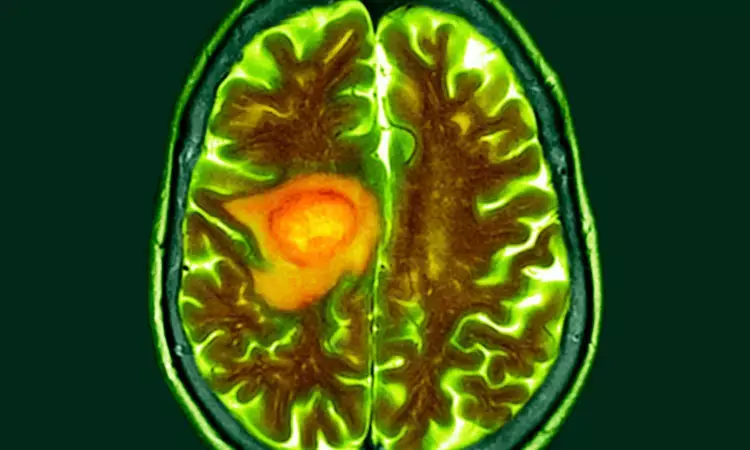- Home
- Medical news & Guidelines
- Anesthesiology
- Cardiology and CTVS
- Critical Care
- Dentistry
- Dermatology
- Diabetes and Endocrinology
- ENT
- Gastroenterology
- Medicine
- Nephrology
- Neurology
- Obstretics-Gynaecology
- Oncology
- Ophthalmology
- Orthopaedics
- Pediatrics-Neonatology
- Psychiatry
- Pulmonology
- Radiology
- Surgery
- Urology
- Laboratory Medicine
- Diet
- Nursing
- Paramedical
- Physiotherapy
- Health news
- Fact Check
- Bone Health Fact Check
- Brain Health Fact Check
- Cancer Related Fact Check
- Child Care Fact Check
- Dental and oral health fact check
- Diabetes and metabolic health fact check
- Diet and Nutrition Fact Check
- Eye and ENT Care Fact Check
- Fitness fact check
- Gut health fact check
- Heart health fact check
- Kidney health fact check
- Medical education fact check
- Men's health fact check
- Respiratory fact check
- Skin and hair care fact check
- Vaccine and Immunization fact check
- Women's health fact check
- AYUSH
- State News
- Andaman and Nicobar Islands
- Andhra Pradesh
- Arunachal Pradesh
- Assam
- Bihar
- Chandigarh
- Chattisgarh
- Dadra and Nagar Haveli
- Daman and Diu
- Delhi
- Goa
- Gujarat
- Haryana
- Himachal Pradesh
- Jammu & Kashmir
- Jharkhand
- Karnataka
- Kerala
- Ladakh
- Lakshadweep
- Madhya Pradesh
- Maharashtra
- Manipur
- Meghalaya
- Mizoram
- Nagaland
- Odisha
- Puducherry
- Punjab
- Rajasthan
- Sikkim
- Tamil Nadu
- Telangana
- Tripura
- Uttar Pradesh
- Uttrakhand
- West Bengal
- Medical Education
- Industry
Triple therapy slows glioblastoma growth and extends survival in preclinical study

A new research paper was published in Oncotarget, Volume 16, on March 27, 2025, titled "Imipridones ONC201/ONC206 + RT/TMZ triple (IRT) therapy reduces intracranial tumor burden, prolongs survival in orthotopic IDH-WT GBM mouse model, and suppresses MGMT."
Researchers from Brown University, led by first author Lanlan Zhou and corresponding author Wafik S. El-Deiry, have shown that combining a new class of drugs called imipridones with standard glioblastoma treatments significantly improves outcomes in mice. The study tested ONC201 and its analog ONC206 in combination with radiation therapy and the chemotherapy drug temozolomide (TMZ), a regimen referred to as IRT. This triple therapy slowed tumor growth and extended survival in a mouse model of glioblastoma, offering a potential new strategy for one of the most aggressive and treatment-resistant brain cancers.
Glioblastoma is a fast-growing brain tumor with a poor prognosis and limited treatment options. Standard care typically includes surgery, radiation, and TMZ, but most patients still face a short life expectancy. While ONC201 and ONC206 are currently being studied in clinical trials as single agents, there has been limited information on how they interact with standard therapies. This study is the first to show that both drugs work synergistically with radiation and TMZ, strengthening their overall effects.
The results showed that in both laboratory-grown tumor cells and mice, the triple therapy significantly slowed cancer cell growth, reduced tumor size, and prolonged survival compared to using any single or double treatment. Mice treated with IRT lived an average of 123 days, with some surviving more than 200 days—far longer than the 44 to 103 days observed with other treatment combinations. In addition to directly killing tumor cells, ONC201 and ONC206 lowered the expression of MGMT, a protein that helps tumors resist chemotherapy, making the treatment more effective.
The researchers also found that the triple therapy reshaped the tumor environment. It decreased levels of harmful molecules that promote tumor growth and immune evasion while increasing signals that activate the immune system. This dual action-directly attacking tumors and boosting immune responses—adds to the potential impact of this treatment approach.
“Overall, our preclinical findings support further exploration of the ONC201 and ONC206 IRT regimen as a potential treatment for GBM and diffuse gliomas with H3K27M mutations.”
While these findings are based on preclinical mouse models, they offer strong support for advancing this triple therapy to clinical trials. ONC201 and ONC206 are promising due to their ability to cross the blood-brain barrier and enhance the effects of standard treatment. This combination could lead to more effective therapies for glioblastoma and other hard-to-treat brain tumors.
Reference:
Zhou L, Zhang L, Zhang J, Wu LJ, Zhang S, George A, Hahn M, Safran HP, Chen CC, Seyhan AA, Wong ET, El-Deiry WS. Imipridones ONC201/ONC206 + RT/TMZ triple (IRT) therapy reduces intracranial tumor burden, prolongs survival in orthotopic IDH-WT GBM mouse model, and suppresses MGMT. Oncotarget. 2025 Mar 27;16:230-248. doi: 10.18632/oncotarget.28707.
Dr Kamal Kant Kohli-MBBS, DTCD- a chest specialist with more than 30 years of practice and a flair for writing clinical articles, Dr Kamal Kant Kohli joined Medical Dialogues as a Chief Editor of Medical News. Besides writing articles, as an editor, he proofreads and verifies all the medical content published on Medical Dialogues including those coming from journals, studies,medical conferences,guidelines etc. Email: drkohli@medicaldialogues.in. Contact no. 011-43720751


